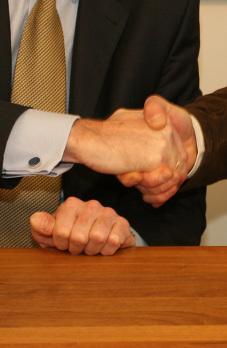New social arrangements
| Function / Domain: | Fisheries, innovation, mobility |
| Illustration of: | New social arrangements |
The anchoring of new, sustainable practices is often accompanied by the development of new social arrangements. An example is given below.
New network organisations for system innovation
Around the turn of the century, the Dutch Ministry of Agriculture established an organisation for system innovation in agriculture and green space: the Innovation Netwerk. It did so in response to the many problems facing Dutch agriculture: falling EU subsidies, environmental problems, growing concern for animal welfare and public health problems. According to the ministry, these factors required radical system innovations in agriculture. InnovationNetwork was asked to find them.
Other network organisations InnovationNetwork has been an example for other, often temporary Dutch organisations for system innovation, such as Habiforum for spatial planning, Transumo for sustainable mobility, PSi Bouw for innovation in the construction industry and Transforum to create knowledge about sustainable agriculture. A common feature of these new organisations (new social arrangements) is that they are network organisations that collaborate in promoting system innovation. For some the emphasis is more on creating knowledge, while others, like InnovationNetwork, also have the task of prompting other parties to develop concepts.
Marine Stewardship Council
The Marine Stewardship Council (MSC) promotes sustainable fishing. It was founded in 1996 by the World Wildlife Fund (WWF) and Unilever, the largest fish processing company in the world. At the time, Greenpeace was conducting a campaign against Unilever. The company decided to take the offensive and established contact with the World Wildlife Fund with a view to collaborating in a new social arrangement.
The MSC quality label The World Wildlife Fund and Unilever agreed on an arrangement based on market mechanisms. They established the Marine Stewardship Council, a non-profit organisation that created a quality label for fish caught in a sustainable manner. Every fishery in the world can now apply for the quality label. The MSC has become a highly respected institution. The standard for sustainable fishing was formulated over a period of two years between 1997 and 1999 in a joint effort by scientific experts, environmental organisations and the fisheries sector. The number of products certified by the MSC and the number of countries involved in its scheme are growing. In 2009, around 8% of the fish caught worldwide for human consumption was covered by the MSC programme.
Round tables
Roundtables are another new type of social arrangement. These are multi-stakeholder forums established to make a particular trade chain more sustainable. One example is the first Roundtable on Sustainable Palm Oil (RSPO), which was launched by the WWF in 2001. The organisation began by collaborating informally with a number of producers, trading companies, processers and the retail trade. These parties then organised a roundtable meeting to discuss their plans and invited new parties to join. The RSPO was formally established under the Swiss Civil Code in 2004. The members of the RSPO are producers, processors and dealers of palm oil, producers of consumer goods, retailers, banks and investors, environmental and nature conservation organisations and NGOs engaged with social issues. The RSPO's principal aim is to promote the growth and use of sustainable palm oil products through credible global standards and engagement of stakeholders.
The Roundtable makes decisions by consensus. Its activities include:
- Developing acceptable and credible definitions and criteria for the sustainable production and use of palm oil.
- Initiating and carrying out projects to help with the implementation of best practices.
- Developing solutions for practical problems connected with the adoption and verification of best practices relating to aspects such as the development and management of plantations, management, trade and logistics.
- Raising funds from private and public sources to finance projects.
- Communicating about RSPO's activities and their results to all stakeholders and the wider public.
In addition to the Roundtable for palm oil, there are now similar Roundtables for soya and cocoa.
Sources
Marine Stewardship Council: Website Marine Stewardship Council.
Round tables:
